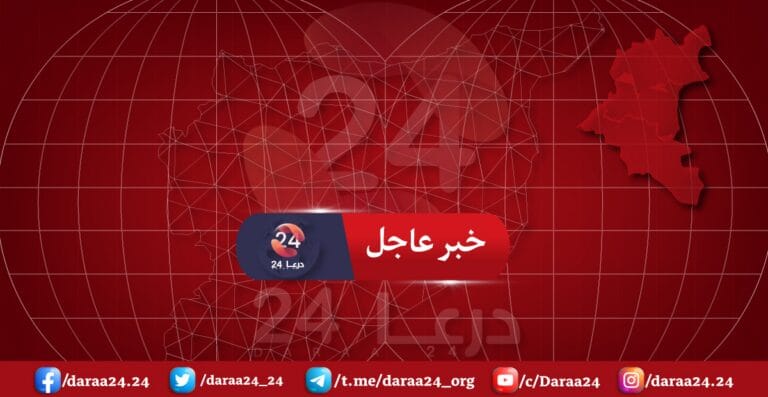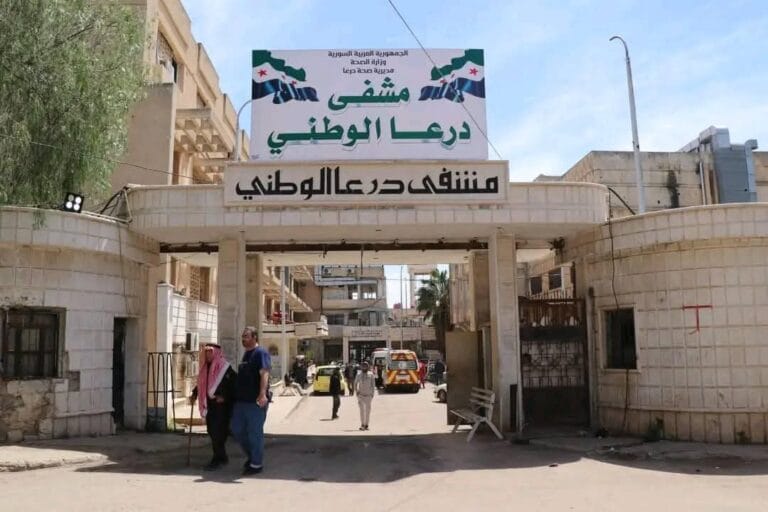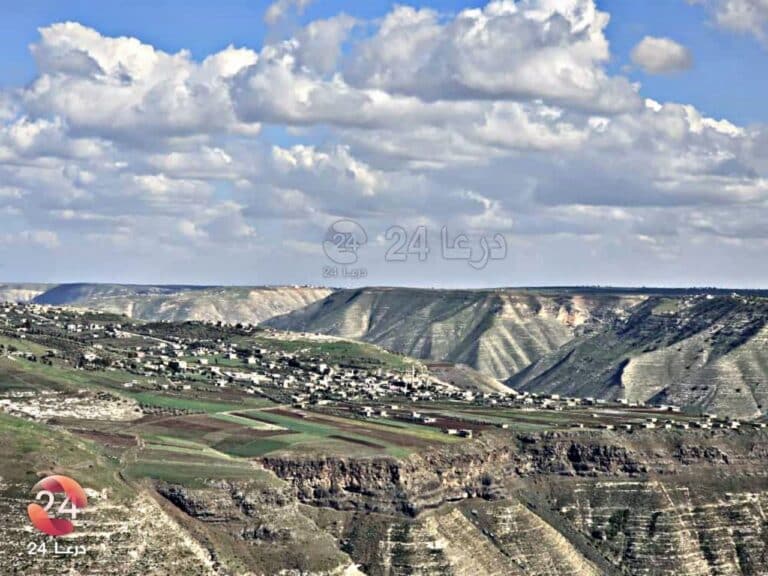In an exclusive interview with Daraa 24, German Ambassador Schneck sheds light on Germany’s stance regarding the ongoing Syrian crisis that has spanned over a decade. Ambassador Schneck discusses the challenges facing a political solution, the impact of regional and international interventions on Syria’s stability, and Germany’s vision for supporting reconstruction efforts, national reconciliation, and alleviating humanitarian suffering. The ambassador also highlights Germany’s role in supporting Syrian civil society, his country’s vision for achieving lasting peace in Syria and the region, and efforts to ensure a safe and dignified return for Syrian refugees.
Question 1: How do you assess the current situation in Syria after more than a decade of conflict? What are the main challenges facing the political settlement efforts today? And do you believe that the Constitutional Committee is an effective step towards a political solution?
First of all, the situation in Syria is dire, and it is getting worse by the day. On the political process, I must say it is very clear that we face the problem that the regime is not willing to engage in such a process. Unfortunately, they did not respond to the invitation from Special Envoy Pederson to the Constitutional Committee in Geneva.
I would say that it is still a question of the regime’s willingness and, of course, the readiness of the foreign powers who intervened in Syria, like Iran, to allow the political process to go on for the sake of Syria. Council Resolution 2254 is, of course, still a valid framework, and it is a good framework within which all parties can rally Iran and engage in meaningful dialogue.
Question 2: And you mentioned the role of Iran. So how do you coordinate with international actors like Iran and others on Syria?
The role of Iran, of course, is absolutely negative, especially given the fact that Iran misuses Syria for its wider regional and aggressive policy. The same accounts for Russia, which is growing weaker by the day because of its role in Ukraine. But I think it is of utmost importance that the regime gets into the discussion within the framework of the UN, as it was decided by the UN Security Council, including China, Russia, U.S., UK and France.
Question 3: What do you see as the biggest challenges to peacebuilding in Syria and the region, especially with the escalating conflicts and tensions? Do you think these tensions between various powers are complicating the political scene, or is there any opportunity to leverage these developments for progress towards a political solution?
While the current situation, of course, is very worrying, it is a reminder though, that what seems to be stable is not that stable as it seems. And it is a reminder that all actors on the ground should get together to solve the problems, to communicate for the sake of the Syrians and for the whole of Syria.
Read also: Exclusive interview with German envoy to Syria, Mr. Stefan Schneck 30-12-2022
Question 4: Are you satisfied with the actions taken by Austria, Italy and other European countries in dealing with Assad? Do you think Germany will take similar steps. And how do you evaluate these actions in light of the need for a unified European stance on the Syria crisis?
We have a unified European stance which is laid down by the council conclusions, which we all agree is the strategic framework, which has six objectives, positive objectives, like the political process, of course, helping the Syrians on the ground. On the other hand, we see that we have new challenges, and we’re discussing them continuously within the EU to find the correct solutions for the new challenges. So, we are looking into our instruments to adapt and optimise them. And I might give you two areas where we will step up our engagement. The first one is Captagon. As you know, it’s a question of utmost importance for the stability within Syria, but also for the wider region.
Therefore, we decided that we will discuss the EU strategy to fight Captagon with regional partners and also within Syria. On the other hand, we have a second topic, for example, early recovery. We see that the urgent help of humanitarian aid is not enough anymore. It is a protracted conflict. So we have to engage with more sustainable projects. And everybody will understand that it’s more effective to build water pipes instead of water trucking. So I think the quality of our help has to increase. And this is, of course, a process which we’re doing in a coordinated manner within the EU.
Question 5: Sticking to the south now, and given the Russian, Iranian and Israeli interventions in southern Syria, specifically in the Daraa province, how do you view the impact of these interventions on the region’s stability? How can Germany contribute to maintaining stability in southern Syria, particularly under these conditions?
Well, I’ve already mentioned the negative impact of the Iranian and Russian presence. Iran is supporting Hezbollah. Hezbollah is very much engaged in Captagon trafficking and also production with the regime. Therefore, the destabilising factor continues to grow, not only by military action but also by supporting those criminal structures.
Therefore, we have to see the captagon as a holistic problem. It has a regional and political side, but it also, of course, has a health and societal side. Therefore, we raise this issue within the EU and put it on the table.
Question 6: And sticking to this point of society and societal change, what is Germany’s vision for supporting national reconciliation efforts in Syria? And how can the international community, and Germany in particular, provide the necessary support to achieve comprehensive reconciliation between conflicting parties and enhance stability in the country?
Well, first of all, as you know, Germany is the biggest, or one of the biggest donors who’s supporting grassroots and civil society projects. One of our major political take here is that we take Syria as the whole of Syria. It’s not only about northwest or the Damascus area or northeast, but we are thinking about the whole of Syria and doing projects where we have inter confessional and also inter ethnic contexts and networks.
And those networks are very important to show that there is a peaceful future for Syria where Kurds and Arabs, Alawi and Sunni, Shia and Druze, they get along and they have common interests and they have a common understanding, even though they have also different paths and different identities and different stories, which all mean something in the discussion. But therefore, this is democracy.
We need an open discussion and open mind for such discussions. And this is an important part in order to gain peace in the long run.
Sheikh Ahmad Al-Sayasneh in an exclusive interview with Daraa 24: I believe in the unity of Syria
Question 7: And in light of the decline in international funding for Syria, despite growing needs on the ground, does Germany plan to reconsider its humanitarian and developmental aid funding, especially considering that it is one of the largest donors?
I think there are maybe three aspects here to look in. The first, of course, is the international governmental support.
As I mentioned already, we understand that the help has to be more sustainable. Therefore, we shift our support from humanitarian aid to early recovery, which is more sustainable and therefore has a better humanitarian profit and in the end, a better result. On the second, of course, we should not overlook the support which comes through private channels. The remittances from Germany are growing by the year because Syrians in Germany integrate into a labor market. And this is by far the biggest part of financial aid, which is about 3.7 billion in the last year. And I would like to mention a third point which we sometimes forget. Humanitarian aid and early recovery support are very important.
Remittances are even more important. But the most important is, of course, that the de facto authorities on the ground, that they get together to integrate the market and that the mismanagement of funds stops.
Question 8: I’m moving on now to a final question. What is Germany’s current policy regarding Syrian refugees? And are there plans to facilitate their integration or encourage their return to Syria if safe conditions are met?
Well, first of all, integration of Syrians in Germany is one of our priorities. Last year we spent 27 billion for integration, which is a huge burden. And there are big critics also in Germany, but we see it as an investment in the future and in the people. It’s about language courses, but integration goes further. So it’s about communicating with your neighbors and integrating into the labor market. Those are huge challenges that the Syrians, with the help of the German government, have to face. We are ready to invest further in them.
On the second hand, we have been always clear that Syrians have the right to return and we very much stick to the principle of a voluntary, safe and dignified return. The UNHCR principles. This is still our guiding principle. And we have concerning returns, two issues. The first is of course, livelihoods. I’ve talked already about it.
That is important that we also get a good situation on the ground so that our help can really flourish and change things. We are ready to engage. On the second side, of course, it has protection issues. So as long as people have to fear to disappear in Syria into different prisons to get torture when they come back, they don’t have their houses or somebody else is living there. The HPL rites. I don’t see a situation where a lot of Syrians are willing to return or can return.
And it is very much up to the de facto authorities and the regime to give proves and to give guarantees that people who are willing to return can do it in a safe, voluntary and dignified manner.
Thank you very much, Ambassador Schneck for taking the time to do this interview. And we very much appreciate your candid and detailed answers.
للإطّلاع على المقابلة باللغة العربية، من خلال الرابط التالي:






